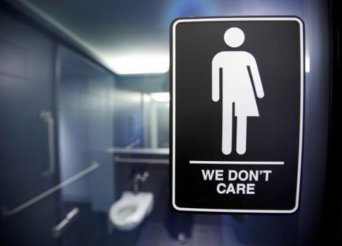- About
- Topics
- Picks
- Audio
- Story
- In-Depth
- Opinion
- News
- Donate
- Signup for our newsletterOur Editors' Best Picks.Send
Read, Debate: Engage.
On Friday, the Obama Administration made headlines when the Department of Education and Department of Justice issued guidance explaining how public schools should respect the rights of transgender students.
The federal guidance has ignited passionate debate, but it reflects a lesson that schools across the country have understood for years. Having policies in place to support lesbian, gay, bisexual, and transgender (LGBT) students is crucially important if schools are to make those students feel welcome and engaged in their communities.
Yet policy guidelines for LGBT youth continue to be politicized, most recently in Michigan. At its meeting on May 10, Michigan’s Board of Education heard hours of public comment about proposed guidelines that schools could follow to become safer and more inclusive for LGBT students. In introducing the guidelines, the board laudably recognized that LGBT students are at higher risk of anxiety, depression, suicide, and other adverse effects in their mental health from bullying, discrimination, and a lack of support at home and in school.
Michigan’s guidelines identify best practices ranging from strong anti-bullying policies to staff training to enhanced school resources. But they are under attack by state lawmakers who are incensed that the guidelines also recommend perfectly reasonable accommodations for transgender students. These opponents seek to torpedo the entire set of badly needed guidelines rather than let the provisions they object to stand.
The resolutions are pending in the state’s House of Representatives. In the meantime, the Board of Education has deferred final action on the guidelines as it sifts through thousands of public comments.
As Ryan Thoreson from Human Rights Watch writes:
"
Over the past eight months, I’ve traveled around the country speaking to hundreds of LGBT students. They told me about feeling alienated, invisible, and unsafe in school. They described physical harassment, daily slurs that go unpunished, and the lack of school resources to address their concerns. They said that teachers had told them that LGBT people are abnormal, and that administrators had discouraged them from forming gay-straight alliances."
"Transgender students have faced some of the worst treatment, being addressed by the wrong name and pronouns, sexually harassed, and barred from bathrooms, locker rooms, or sports teams consistent with their gender identity. In some cases, students have dropped out or turned to home- or online schooling because they concluded there was no place for them in their public school."
"Schools that care about the mental health and well-being of their LGBT students should have a blueprint to make a real difference," he argues. "Lawmakers should reject attacks on the guidelines that feed on fear and stereotypes and instead support the Board of Education’s efforts to protect the rights, needs, and dignity of all the state’s students."
